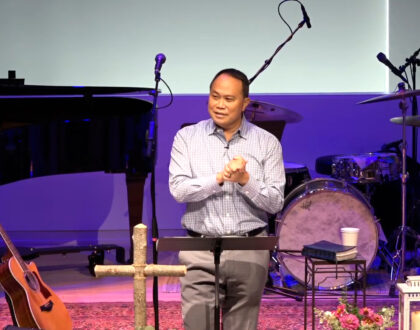Our Search for Meaning

This weekend, I will be joining 30 other Woodmonters for a mission trip to Guatemala. This is the first family trip that we have ever offered to that country. Please keep our group in your prayers in the coming days. I am excited to show Megan and my kids what Woodmont has accomplished in that country. We have now funded and constructed 67 houses and we have sponsored around 375 children and seniors giving them a chance to go to school, get an education, and have some basic necessities for life. I am very grateful to our church for the impact we have made there. It is an incredible story of mission, compassion, and love.
What are the things that give our lives meaning and purpose? How do we live in a way that feels like we are contributing to society and making an impactful difference? The late rabbi Jonathan Sacks once published a book titled Not In God’s Name: Confronting Religious Violence. He says: “Science, technology, the free market, and the liberal democratic state have enabled us to reach unprecedented achievements in knowledge, freedom, life expectancy, and affluence. They are among the greatest achievements of human civilization and are to be defended and cherished. But they do not and cannot answer three questions every reflective individual will ask at some time in his or her life: Who am I? Why I am I here? How then shall I live?” Religion and faith matter because it is hard to live without asking these important questions.
I often ask people to name four core values that define the way they try to live their lives. What would they consider to be their guiding principles and priorities from day to day? Answers will vary but might include kindness, service, faith, hospitality, compassion, the Golden Rule, hope, authenticity, joy, and family. Naming these values is the easy part. Living them out is always the challenge. Many in our culture feel lost, invisible, and confused.
A few years ago, Emily Smith wrote an article for The Atlantic titled, “There’s More to Life Than Being Happy.” She says, “Happiness without meaning characterizes a relatively shallow, self-absorbed, or even selfish life in which things go well, needs and desires are easily satisfied, and difficult or taxing estranglements are avoided.”
Having an abundance of money and possessions may bring about temporary happiness but in and of itself, it will not provide meaning in life. Many wealthy people are lonely and feel isolated. “Happiness comes and goes but meaning has longevity. People whose lives have high levels of meaning often actively seek meaning out even when they know it will come at the expense of happiness.”
Put differently, some of the things that give us meaning in our lives – commitment, sacrifice, friendship, marriage, raising children, sustaining a career, being generous – may even bring about unhappiness at times because these things require commitment and are often not easy. Meaning is always deeper but it has staying power. Smith argues that happiness is basically associated with taking, but meaning is associated with the giving of ourselves.
Happiness is fleeting, meaning is ongoing. Happiness is often the result of things out of our control, but meaning is something that we actively choose to
invest in. Every single one of us likes to be happy but we all long for meaning. And yes, it is possible to experience both.
The Harvard Grant Study proved that meaning is always tied to deep relationships over time because we were created as social beings. Victor Frankl famously said: “Being human always points, and is directed to something or someone other than oneself. The more one forgets himself by giving himself a cause to serve or another person to love – the more human he is.”
David Brooks posed similar questions in The Road to Character: “Toward what should I orient my life? Who am I and what is my nature? How do I mold my nature to make it gradually better day by day? What virtues are the most important to cultivate and what weaknesses should I fear the most? How can I raise my children with a true sense of who they are and a practical set of ideas about how to travel along the road to character?”
As our culture has become more self-centered, meaning gets lost. If we can move beyond the noise and many distractions of the digital age, we can begin to answer these timeless questions for ourselves.
Recommended Posts

Political Violence is Never the Answer
July 25, 2024

“Messenger” – Justin Gung – July 14
July 14, 2024

Celebrating Woodmont’s 81st Birthday
July 10, 2024

